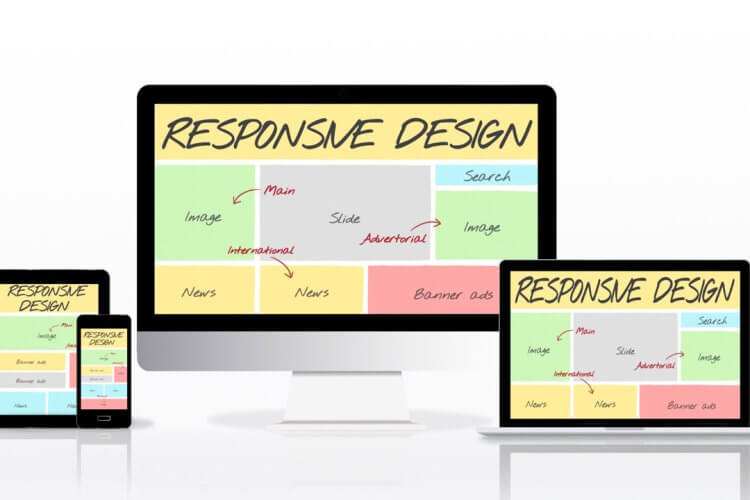
A Beginner’s Guide to Content Management Systems
In today’s digital age, having a robust online presence is essential for any business. A Content Management System (CMS) can be a game-changer, simplifying website management and enabling you to focus on what truly matters—creating great content. If you’re new to the concept of CMS, this guide will walk you through the basics, benefits, and how to choose the right one for your business.
What is a Content Management System (CMS)?
A CMS is software that allows you to create, manage, and modify content on a website without needing specialized technical knowledge. It’s an all-in-one platform where you can handle everything from website design to content creation, ensuring a seamless online experience.
How Does a CMS Work?
A CMS typically comprises two main components:
Content Management Application (CMA)
The CMA is the front-end interface that allows you to add and manage content. It’s user-friendly and doesn’t require you to write code.
Content Delivery Application (CDA)
The CDA is the back-end process that compiles and updates the content to your site. It ensures that the changes you make are reflected in real-time.
Benefits of Using a CMS
1. Ease of Use
A CMS is designed for non-technical users. With its intuitive interface, you can create, edit, and publish content effortlessly.
2. Collaboration and Access Control
Multiple users can collaborate on the same project, and you can set different levels of access, ensuring that only authorized personnel can make changes.
3. SEO-Friendly Features
Most CMS platforms come with built-in SEO tools that help you optimize your site for search engines, improving your visibility and ranking.
4. Customization and Flexibility
With a plethora of themes and plugins, you can customize your website to fit your brand’s identity and functionalities.
5. Cost-Effective
Using a CMS can be more cost-effective than hiring a web developer for every change or update you need on your website.
Popular CMS Platforms
1. WordPress
WordPress is the most popular CMS, powering over 40% of all websites, bahariweb.com is one of them. It’s highly flexible, with thousands of plugins and themes available.
2. Joomla
Joomla is known for its flexibility and scalability, making it suitable for complex websites and applications.
3. Drupal
Drupal is a powerful CMS designed for developers who need extensive customization and complex data management.
4. Shopify
Shopify is a dedicated CMS for e-commerce, offering all the tools you need to run an online store.
Choosing the Right CMS for Your Business
1. Define Your Needs
Identify what you need from a CMS. Are you looking for ease of use, specific functionalities, or scalability?
2. Budget Considerations
Some CMS platforms are free, while others come with a subscription fee. Factor in your budget when making a choice.
3. Customization and Flexibility
Ensure the CMS allows for the level of customization your business requires. Check for available themes, plugins, and integrations.
4. User Support and Community
A robust support system and a large community can be very helpful, especially if you’re a beginner.
5. SEO Capabilities
Choose a CMS with strong SEO features to help your site rank higher in search engine results.
Setting Up Your CMS
1. Installation and Setup
Most CMS platforms offer straightforward installation processes. Some hosting providers even offer one-click installs.
2. Selecting a Theme
Choose a theme that aligns with your brand’s identity and customize it to fit your needs.
3. Adding Plugins and Extensions
Plugins and extensions can add extra functionalities to your site, from SEO tools to e-commerce capabilities.
4. Creating and Managing Content
Start by creating essential pages like Home, About, and Contact. Regularly update your blog or news section to keep your audience engaged.
Maintaining Your CMS
1. Regular Updates
Keep your CMS, themes, and plugins updated to the latest versions to ensure security and functionality.
2. Backups
Regularly back up your website to prevent data loss in case of a security breach or technical failure.
3. Security Measures
Implement security measures such as SSL certificates, firewalls, and strong passwords to protect your site.
Conclusion
A Content Management System is an invaluable tool for businesses of all sizes. It simplifies website management, enhances collaboration, and offers a host of features to improve your online presence. Whether you’re a small business owner in Dar es Salaam or running a large enterprise, choosing the right CMS can set the foundation for your digital success.
FAQs
What is the easiest CMS for beginners?
WordPress is widely regarded as the easiest CMS for beginners due to its user-friendly interface and extensive support community.
Can I use a CMS for an e-commerce site?
Yes, platforms like Shopify and WooCommerce (a WordPress plugin) are specifically designed for e-commerce sites.
Is a CMS necessary for a small business?
While not absolutely necessary, a CMS can significantly simplify website management and content creation for small businesses.
How much does a CMS cost?
Costs vary depending on the platform. Some are free (like WordPress), while others require a subscription fee




